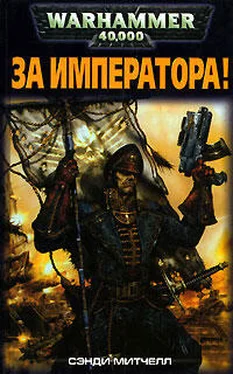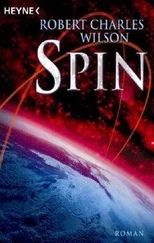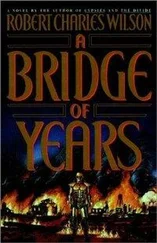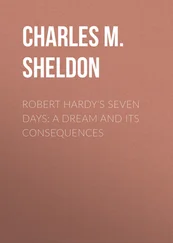* * * * *
The sun, the moon, and the stars.
In the years that followed, children were raised who had never seen the moon with their own eyes; people only five or six years younger than myself passed into maturity knowing the stars mainly from old movies and a handful of increasingly inapt cliches. Once, in my thirties, I played the twentieth-century Antonio Carlos Jobin song Corcovado— "Quiet nights of quiet stars"—for a younger woman, who asked me, eyes earnestly wide, "Were the stars noisy?"
But we had lost something more subtle than a few lights in the sky. We had lost a reliable sense of place. The Earth is round, the moon circles the Earth, the Earth circles the sun: that was as much cosmology as most people owned or wanted, and I doubt one in a hundred thought more about it after high school. But they were baffled when it was stolen from them.
We didn't get an official announcement about the sun until the second week of the October Event.
The sun appeared to move in its predictable and eternal manner. It rose and set according to the standard ephemeris, the days grew shorter in their natural precession; there was nothing to suggest a solar emergency. Much on Earth, including life itself, depends on the nature and amount of solar radiation reaching the planet's surface, and in most respects that hadn't changed. Everything about the sun we could see with the naked eye suggested the same yellow class-G star we'd been blinking at all our lives.
What it lacked, however, were sunspots, prominences, or flares.
The sun is a violent, turbulent object. It seethes, it boils, it rings like a bell with vast energies; it bathes the solar system in a stream of charged particles that would kill us if we weren't protected from it by the Earth's magnetic field. But since the October Event, astronomers announced, the sun had become a geometrically perfect orb of unwaveringly uniform and unblemished brightness. And news came from the north that the aurora borealis, product of the interaction of our magnetic field with all those charged solar particles, had shut down like a bad Broadway play.
Other lapses in the new night sky: no shooting stars. The Earth used to accrete eighty million pounds of spaceborne dust annually, the vast majority of it incinerated by atmospheric friction. But no more: no detectable meteorites entered the atmosphere during the first weeks of the October Event, not even the microscopic ones called Brownlee particles. It was, in astrophysical terms, a deafening silence.
Not even Jason could offer an explanation for that.
* * * * *
So the sun wasn't the sun; but it went on shining, counterfeit or not, and as the days passed, days layered and stacked on days, the bewilderment deepened but the sense of public urgency ebbed. (The water wasn't boiling, it was only warm.)
But what a rich source of talk it all was. Not just the celestial mystery but the immediate consequences of it: the telecom crash; the foreign wars no longer monitored and narrated by satellite; the GPS-guided smart bombs rendered irremediably stupid; the fiber-optic goldrush. Pronouncements were issued with depressing regularity from Washington: We have as yet no evidence of hostile intent on the part of any nation or agency and The best minds of our generation are working to understand, explain, and ultimately reverse the potential negative effects of this shroud that has obscured our view of the universe. Soothing word salad from an administration still hoping to identify an enemy, terrestrial or otherwise, capable of such an act. But the enemy was stubbornly elusive. People began to speak of "a hypothetical controlling intelligence." Unable to see past the walls of our prison, we were reduced to mapping its edges and corners.
Jason retreated to his room for most of a month after the Event. During this time I didn't speak to him directly, only caught glimpses of him when the twins were picked up by the Rice Academy minibus. But Diane called me on my cell almost every evening, usually around ten or eleven, when we could both count on a little privacy. And I treasured her calls, for reasons I wasn't quite ready to admit to myself.
"Jason's in a pissy mood," she told me one night. "He says if we don't know for sure if the sun is the sun, we don't really know anything at all."
"Maybe he's right."
"But it's almost a religious thing for Jase. He's always loved maps—did you know that, Tyler? Even when he was very little, he got the idea of how a map worked. He liked to know where he was. It makes sense of things, he used to say. God, I used to love to listen to him talk about maps. I think that's why he's so freaked now, even more than most people. Nothing's where it's supposed to be. He lost his map."
Of course, there were already clues in place. Before the week was out the military had begun to collect debris from fallen satellites—satellites that had been in stable orbits until that night in October but had plunged back to Earth before dawn, one and all, some leaving wreckage that was invested with tantalizing evidence. But it took time for that information to reach even the well-connected household of E. D. Lawton.
* * * * *
Our first winter of dark nights was claustrophobic and strange. Snow came early: we lived within commuting distance of Washington, D.C., but by Christmas it looked more like Vermont. The news remained ominous. A fragile, hastily brokered peace treaty between India and Pakistan teetered toward war and back again; the U.N.-sponsored decontamination project in the Hindu Kush had already cost dozens of lives in addition to the original casualties. In northern Africa, brushfire wars smoldered while the armies of the industrial world withdrew to regroup. Oil prices skyrocketed. At home, we kept the thermostat a couple of degrees under comfortable until the days began to grow longer (when the sun came back and the first quail called).
But in the face of unknown and poorly understood threats the human race managed not to trigger a full-blown global war, to our credit. We made our adjustments and got on with business, and by spring people were talking about "the new normal." In the long run, it was understood, we might have to pay a higher price for whatever had happened to the planet… but in the long run, as they say, we're all dead.
I saw the change in my mother. The passage of time calmed her and the warm weather, when it finally came, drew some of the tension from her face. And I saw the change in Jason, who came out of his meditative retreat. I worried, though, about Diane, who refused to talk about the stars at all and had lately begun to ask whether I believed in God— whether I thought God was responsible for what had happened in October.
I wouldn't know about that, I told her. My family weren't churchgoers. The subject made me a little nervous, frankly.
* * * * *
That summer the three of us rode our bikes to the Fairway Mall for the last time.
We had made the trip a hundred, a thousand times before. The twins were already getting a little old for it, but in the seven years we had all lived on the property of the Big House it had become a ritual, the summer-Saturday inevitable. We skipped it on rainy or swelteringly hot weekends, but when the weather was fine we were drawn as if by an invisible hand to our meeting point at the end of the long Lawton driveway.
Today the air was gentle and breezy and the sunlight infused everything it touched with a deep organic warmth. It was as if the climate wanted to reassure us: the natural world was doing all right, thank you, almost ten months after the Event… even if we were (as Jase occasionally said) a cultivated planet now, a garden tended by unknown forces rather than a patch of cosmic wildwood.
Jason rode an expensive mountain bike, Diane a less flashy girls' equivalent. My bike was a secondhand junker my mother had bought for me at a thrift shop. No matter. What was important was the piney tang of the air and the empty hours arrayed before of us. I felt it, Diane felt it, and I think Jason felt it, too, though he seemed distracted and even a little embarrassed when we saddled up that morning. I put it down to stress or (this was August) the prospect of another school year. Jase was in an accelerated academic stream at Rice, a high-pressure school. Last year he had breezed through the math and physics courses—he could have taught them—but next semester he was signed up for a Latin credit. "It's not even a living language," he said. "Who the hell reads Latin, outside classical scholars? It's like learning FORTRAN. All the important texts were translated a long time ago. Does it make me a better person to read Cicero in the original? Cicero, for god's sake? The Alan Dershowitz of the Roman Republic?"
Читать дальше












